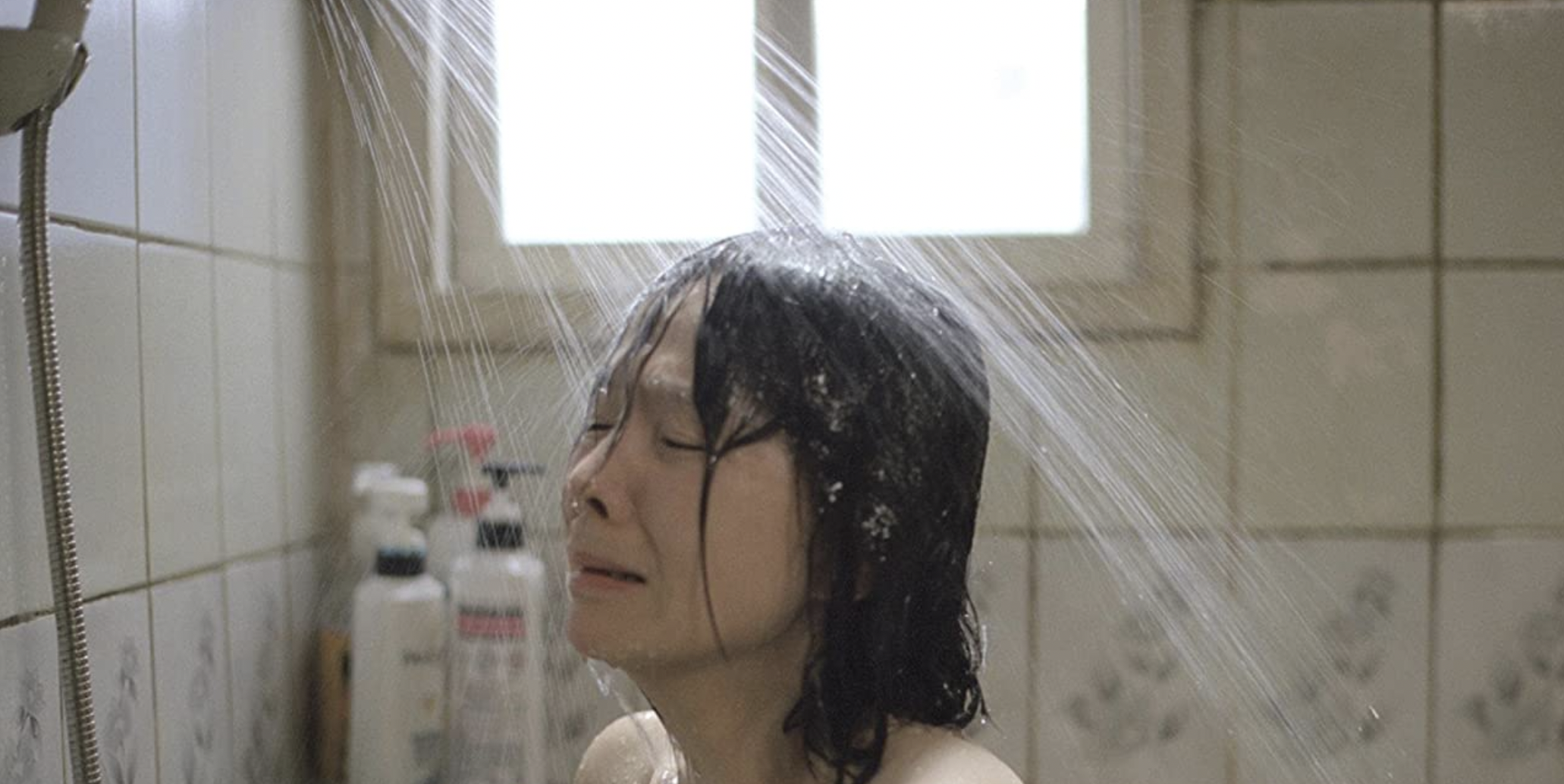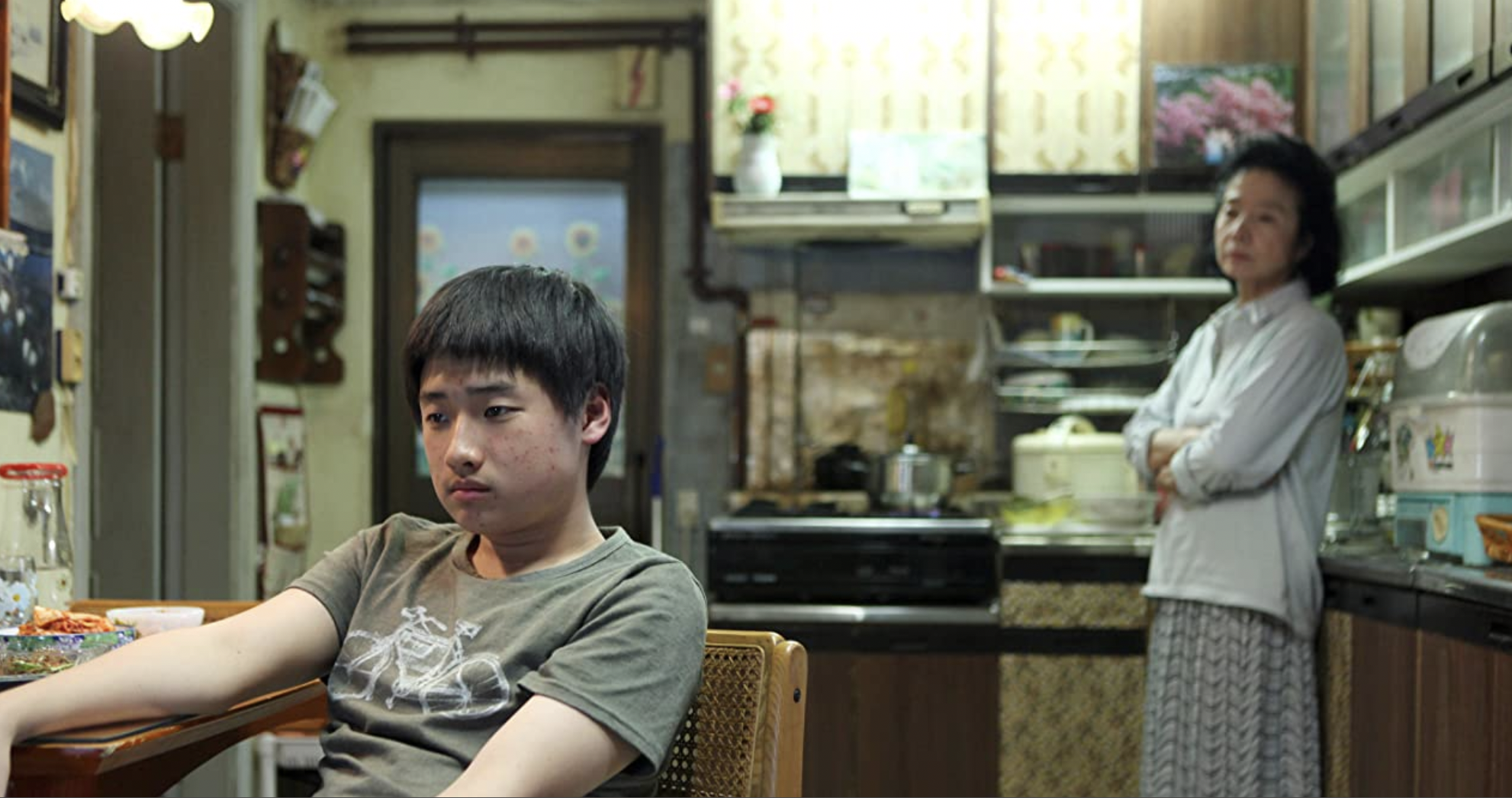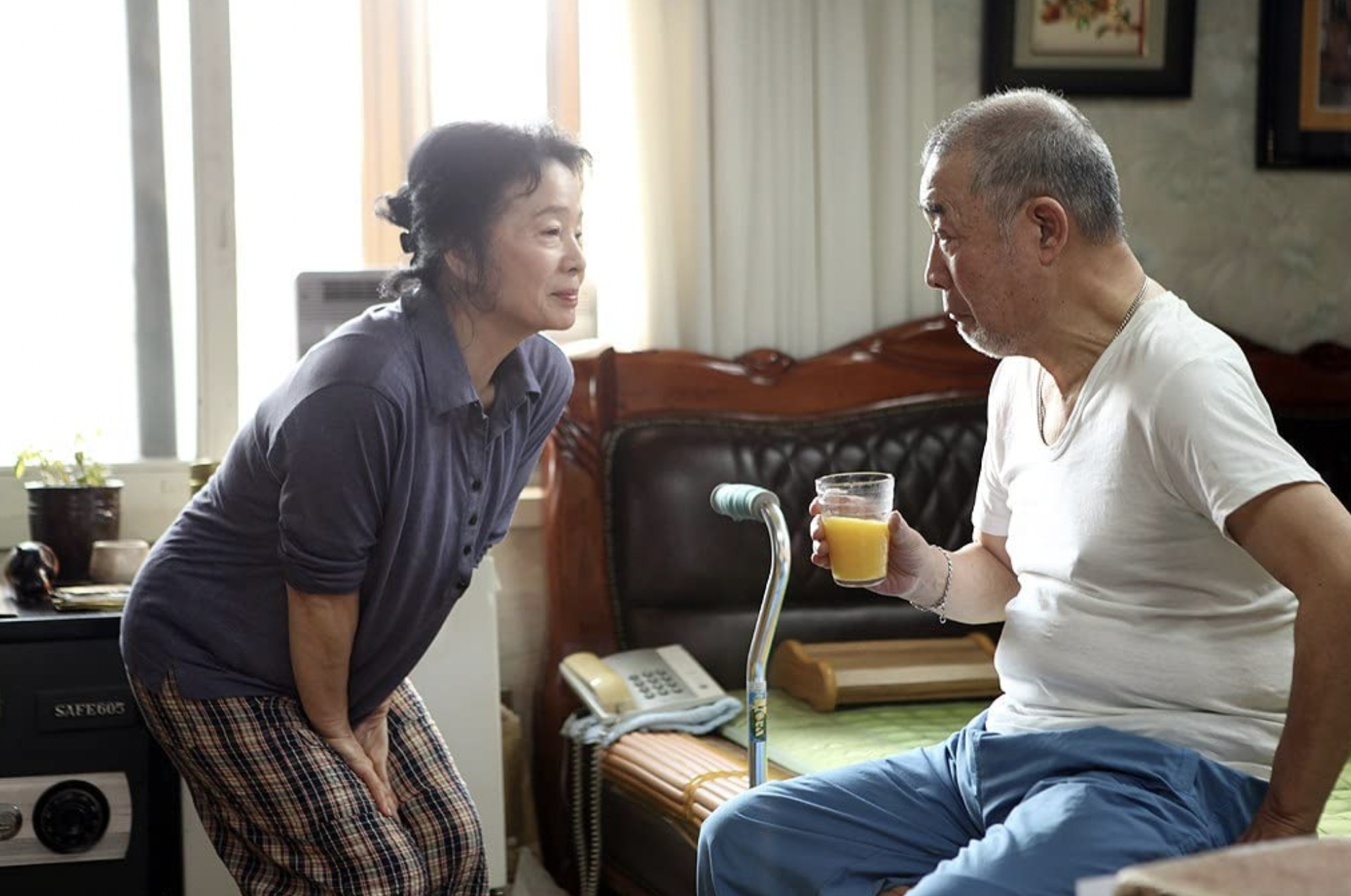(“Poetry”, 2010, Chang-dong Lee)
Early in this film elderly caregiver Jang Mi-ja learns that
she is coming down with Alzheimer's disease. Given the
other obstacles she faces, namely
1) raising an unruly miscreant of a grandson,
you might expect a tense fast-moving film. But no. This is a
slow-moving character study. A character study in which it
is difficult to get inside the protagonist's head. There is no voice over; there is
no talking problems over with other people. For almost the
entire film we must judge Mi-Ja's character from her actions.
Then just when we are full of curiosity about what's going on
inside that head, we get a poem.
This not a poem we would associate with a person of
Mi-Ja's background, especially since she has such a hard time
getting started. But there are two things to remember.
First Korea is a country that tries to give everybody a solid
education. Regardless of her social class, Mi-Ja is not
illiterate. Second in this film we are led to believe by
Mi-Ja's poetry teacher that poetry requires nothing more than
an ability to see into the essence of things, including one's
own soul.
Mi-Ja's poem does show us what's inside her. She has a
deep concern with a young girl's suicide, a suicide that her
grandson is partly responsible for. What Mi-Ja thinks and
does about this are best discovered by watching the film but
it is worth mentioning some characteristics of Korean culture
here.
Family ties are close in Korea. Mi-Ja feels responsibility
for her grandson's actions. She isn't alone in this. Her grandson hasn't acted by himself and the families of some of his friends bear responsibility as well. Together they consider paying reparations.
Now reparations are a way of admitting responsibility without
involving the law. Reparations can be paid to hush things up
or simply because the harmed party deserves
something more than “I'm sorry”. We see both motivations in
this film.
Sometimes reparations are called
“blood money”. We Americans tend to look down on blood
money
without realizing we have a similar concept. It's called
a “tort”. A tort is a claim that someone has been harmed
and deserves compensation. The claim is handled in a civil
court. In 1995 there was
a case, in which a civil court forced a famous football
player,
O.J. Simpson, to pay compensation for a murder
that the criminal courts were unable to convict him of.
The reparations discussed in “Poetry” can be a way of avoiding
criminal court. No doubt this is a system that enables some
rich people to avoid legal consequences but we ought not be
too critical of Korea for that.
In the U.S. the rich avoid some
convictions by hiring fancy lawyers. Both systems
have a
secondary system of paying reparations which provides victim
compensation and makes getting off scot-free more difficult
for the rich.
Mi-Ja has a complex moral problem to solve and, being lower
on the socio-economic ladder than the other families in this
film, there are practical constraints as well. To accept her
solutions you may have to look beyond some
of your attitudes towards life, death, and moral
responsibility. Do so and you will
finish the movie with respect and compassion for this gentle,
elderly home health care worker.




